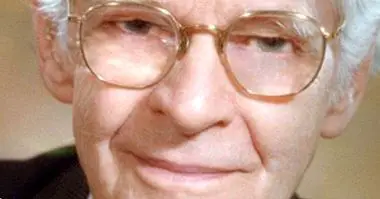Where is the mind located?
In our daily conversations it happens quite often that, when we want to talk about the "essence" of people, let's talk about their minds.
The film (Martín Hache), for example, popularized one of the proclamations that best expresses this idea applied to attraction: the interesting thing is not the bodies themselves, but the intellectual facet of human beings, something like their psyche. In other cases, we think that although the passage of time changes our appearance, there is something that remains more or less the same, and that is the mind, which identifies us as thinking individuals.
However... Do we know anything about what we call mind? Where is it located, to begin with? This is a tricky question and that gives rise to some pretty provocative accounts.
- Maybe you're interested: "Mentalism in Psychology, belief in the soul, and why it's a problem"
The location of the mind in the body
The decades go by in the history of psychology and neuroscience, but we still do not attribute a specific place to the mind; at most, the brain is the set of organs to which we attribute, in a rather imprecise way, that ability to house mental life . But is this successful? To understand it, let's go to the origins of the question of where the mind is.
The dualistic theory of Descartes is possibly the first great effort in the history of humanity to locate that mental life in human anatomy: the French proposed the pineal gland as the structure from which our thoughts emanate. Now, the entire conceptual building collapsed at the moment when we denied the possibility of the existence of the soul. Not for nothing, Descartes was a strong advocate of the division between body and spirit, something that does not hold scientifically.
But although in theory Descartes' ideas are rejected by current science, we usually assume that the correct thing to do is to think as this philosopher did, although changing the concept of soul for the mind . Human beings have an innate tendency to create categories for any phenomenon and plot of reality, and that is why we believe that there is something called "mind", from which emanate all thoughts, emotions, decisions, etc. And, when it comes to attributing a place to that source from which the whole psyche emerges, we choose the brain, just like Descartes.
- Maybe you're interested: "Dualism in Psychology"
The mind beyond the brain
As we have seen, we have an almost instinctive tendency to believe that minds are in our heads, piloting our bodies as if they were tiny little men . In turn, many scientists, both in psychology and in neuroscience, assume that the mind is located in a specific place in the body. For example, the frontal lobe is usually given a lot of importance, since this part of the brain has a very important role in decision making and initiation of movements.
Other researchers have done the opposite, associating the mind with larger locations. Beyond pseudoscientific theories that speak of cosmic minds that hold memories about past lives, there are defenders of other ways of the idea that the mind is beyond the nervous system. For example, from the theory of the embodied cognition it is considered that the positions, movements of the body, as well as the stimuli that they capture, are part of the mental life, since they condition what we think and what we feel.
On the other hand, authors like Andy Clark, defenders of the theory of the extended mind , believe that this goes beyond the individual body of people, and is also in the environment with which we interact, as both these external elements and the parts of our body are essential for the mind to behave as It does in the here and now. Computers, for example, are places where we store information, and our way of functioning already includes them totally as part of an expanded memory.
The fundamental question: does the mind exist?
So far we have seen attempts to locate the mind, but to ask where the mind is it is necessary, first of all, to make sure that there are sufficient reasons to consider that it exists.
Behavioral psychologists have been characterized precisely by rejecting the existence of something called mind ... or at least, one that can be located somewhere. In the same way in which the movement of a train or the money that we have in the account can not be understood as something limited to a place, the same happens with the mind.
From this perspective, to believe that the mind is something similar to an object or a subject is the result of having fallen into a conceptual trap.The mind is not a thing, it is a process; a set of dispositions that make sense when a series of responses to stimuli are given. Hence the concept of a mereological fallacy, the tendency to attribute a place (in the case that normally concerns us to the brain), something that is characterized as a set of changes.
And is that if something characterizes our experiences and our way of behaving is that it always occurs in different circumstances. In the same way that spring is not in a landscape or in a specific country, what we call mind should be understood not as a noun.
The idea that the mind does not exist may sound provocative, but it is no less true that we assume that it exists as a dogma, without paranos to think if it is really right. What is clear is that this is a subject that gives to discuss long and hard. And you do you think?



















